“How often should I tune my piano” is a question we get all the time.
The short answer is at least every year, ideally around the same time each year. But there is some nuance!
So let’s answer this question thoroughly, knocking out some other commonly-asked questions about piano tunings.
What is Piano Tuning?
Piano tuning is making sure all 260+ of the strings inside a piano are at their perfect pitch, so every note sounds good together.
Tuning is necessary for all acoustic pianos. Just as you need to change your car’s oil, you need to have your piano tuned.
And just like skipping the dentist, the piano tuner can cause bigger problems and cost more in the long run.
Important note: tuning only makes sure the piano is playing the correct notes. If the piano isn’t working properly, its action may need adjustments or some parts replacing.
As piano tuners near Chicago, we nearly always budget extra time for minor service work. Nearly always, there’s something to check or adjust.
How is a Piano Tuned?
During a tuning, piano tuners carefully balance the instrument’s 40,000+ lbs of string tension. Most do this using their precisely-trained ears in combination with industry-standard tools ie. tuning fork, tuning lever, tuning app, etc.
Piano tuning isn’t just a skill, it’s an art and science. It takes years of practice — not something to try after watching a 20m tutorial!
Tuning a piano improperly can cause strings to snap or other strings to drift out of wack. It’s a very delicate process — definitely not as easy as tuning most other instruments!
Throughout a tuning, you’ll hear the technician hit one note repeatedly while carefully adjusting its 1-3 strings. This can take a professional up to two hours depending on how out of tune the piano is.
What is a Pitch Raise in Piano Tuning?
If your piano hasn’t been tuned in a while, you may be told it needs a pitch raise (more accurately called a pitch adjustment).
Essentially, this is just a second pass during a regular tuning. The first pass is the pitch adjustment to get it roughly in the ballpark; the second pass is the fine tuning to get it perfectly in tune.
This is really the only way to tune a very out-of-tune piano. If you painted a dark wall white, you’d need at least 2 coats of paint — same idea here.
3 hours and strings snapping back to their old tune? What a patient tech! While pounding in loose pins helped stability, we’re sure this piano was in need of another tuning just a few weeks later!
Why Do Pianos Go Out of Tune?
Most stringed instruments will naturally go out of tune over time. Changes in temperature and humidity mostly cause this, but heavy usage can also cause tunings to go out faster.
A piano has many wooden parts. As its climate gets drier or more humid, they’ll expand or contract. This moves things inside slightly out of place, affecting the tension of the strings.
Additionally, the repeated striking of the piano keys during loud playing can gradually alter the tension of the strings, leading to gradual detuning over time. Usually this isn’t the main culprit, but it is one reason why concert hall pianos get tuned more often.
How Often Does a Piano Need to be Tuned?
All acoustic pianos need to be tuned regularly. Usually once a year is just right.
If you’re learning piano, playing regularly, don’t yet have a very advanced ear: you should tune every year.
A tuning every 2 years could be appropriate too. With some older pianos mostly used as furniture or only during Christmas — probably just need to make sure the piano is still working okay. Old strings don’t tend to move much, especially if the piano has been well maintained.
New Piano Tuning: Yes & More Often
New pianos do require tuning as well — and more often!
New piano strings have to be broken in just like new guitar strings do. Except, you can’t tug on piano strings this easily — so you just have to tune new pianos more often.
Manufacturers usually suggest having a new piano tuned 4-5x the first year, 3x the second year, and 2-3x a year for the next couple of years. Doing this will make the piano much more stable over its life, something you and your piano tuner will notice.
It’s worth saying that a piano dealer should deliver any purchased piano with a fresh tuning. So you shouldn’t need to have your newly purchased piano tuned immediately. Just have a piano technician tune and check it over within 3 months after delivery.
Can a Piano be Untunable?
If you think you’re having to have your piano tuned too frequently, your piano may have deeper problems.
The most common issue as far as poor tuning stability is unchecked humidity. A piano placed near a drafty window, radiator or vent would go out of tune very quickly — even within a few days!
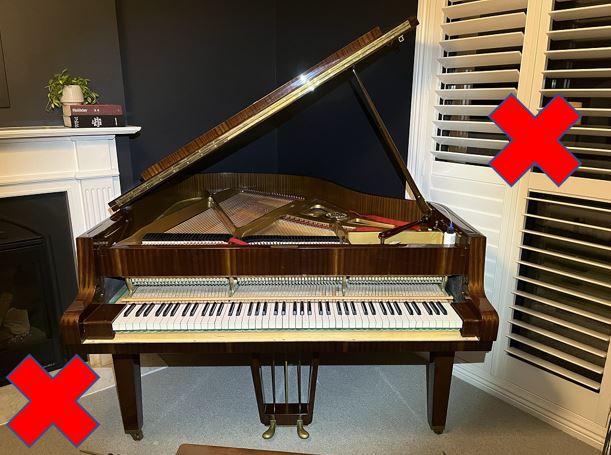
Do not place your piano near a fireplace, and be careful if placing it by a window! (Source: Where to place a piano in your home? | PTTG Victoria)
If the climate is fine, try asking a technician to take a look at the structural parts of the piano (bridges, soundboard, pinblock, etc.). A repair could be needed. If the repair involves “extreme surgery”, your piano may unfortunately be untunable.
How to Tell if a Piano is Out of Tune
A well-tuned piano sounds crisp, and the octaves and unisons sound clean. An untuned piano sounds dissonant, wobbly and almost ghostly.
A far out-of-tune piano sounds like it belongs in a saloon. Which some may prefer for certain styles given the note intervals are roughly fine.
It can be hard for non-musicians to tell if an instrument is out of tune. If you compare it to an in-tune piano, it can be easier to hear the difference. You can also ask your technician to point out what to listen for.
Even if you can’t tell your piano is out-of-tune though, that doesn’t mean your piano doesn’t know. Keeping your piano tuned is important for the piano’s health and for training the player’s ears!
When is the Best Time to Tune a Piano?
The best time to have a piano tuned is when you need it. So if you’re overdue for a tuning already, get a technician in asap!
As is sometimes recommended, many people do have their piano tuned during the more moderate seasons of Spring and Autumn. However, here’s a few things we need to mention about that rule of thumb:
- It’s a busier season for piano tuners. So make sure to book early. Better yet, schedule your next appointment right after your technician finishes their visit!
- Some places have constant climate. Being piano tuners near Chicago, spring or fall can be safe bets. But if you live somewhere with pretty consistent humidity, this doesn’t matter as much.
- Your piano should have a constant climate. Most importantly, the room your piano is in shouldn’t be affected by the weather outside. If you’re swapping heat and AC throughout the year but don’t at least keep a hygrometer to check on humidity, you may have a climate that throws the tuning off regardless of when you have the piano tuned!
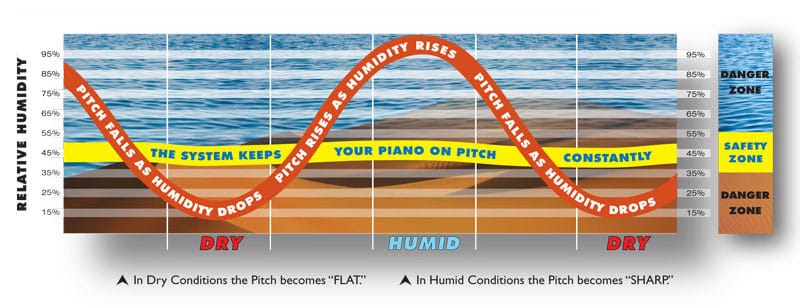
Really can't stress enough how important it is to keep your piano's humidity constant! A Dampp Chaser humidity control system can help keep your piano in that safe zone!
For the most part, if you tune once a year, tune your piano at about the same time/season each year. And yes, probably don’t tune immediately before a big humidity swing in your home ie. turning on the furnace for the winter.
How Often to Tune a Piano: Every Year
Overall, yes there are some variables in the question of how often to tune a piano — ie. age, use, climate — but usually yearly is what experts recommend in the majority of cases.
We also recommend tuning your piano the same month every year. This improves the tuning stability for your piano and gives you the best value.
And again, even if you can’t tell your piano is out-of-tune, that doesn’t mean your piano doesn’t know. Skipping regular servicing because you don’t play much anymore can make it significantly harder to become playable again later.
Most years, piano tuning is the only regular maintenance your acoustic piano will need. Neglecting tuning isn’t as bad as not taking your pet to the vet. However, it may similarly cause them to misbehave and get sad. Don’t make your piano sad!

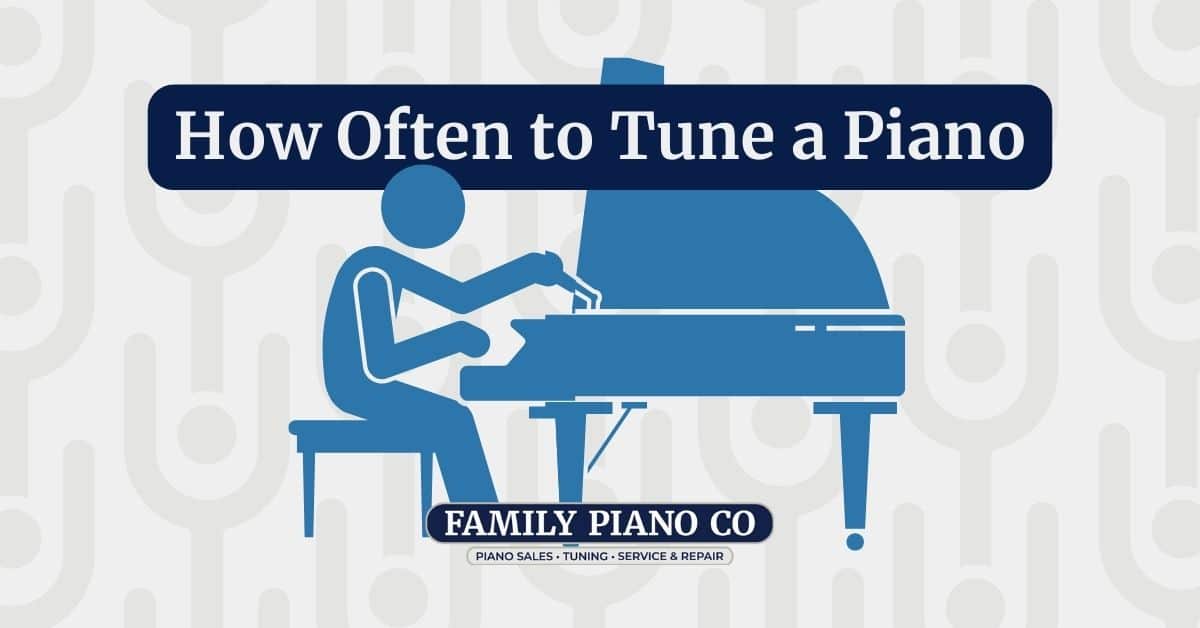
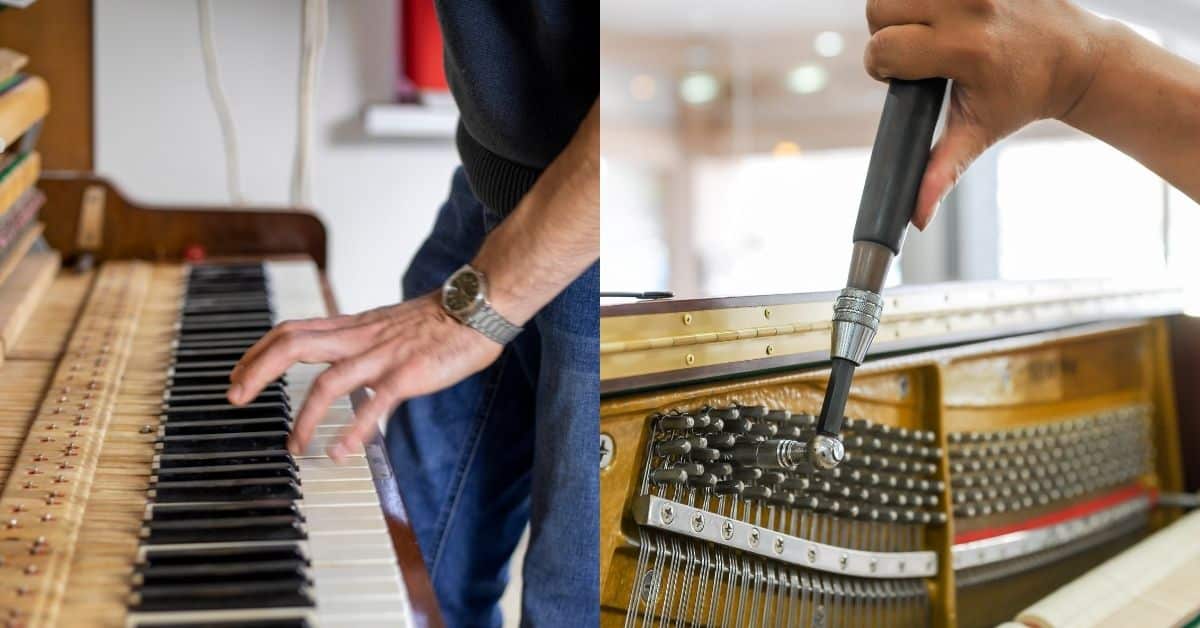
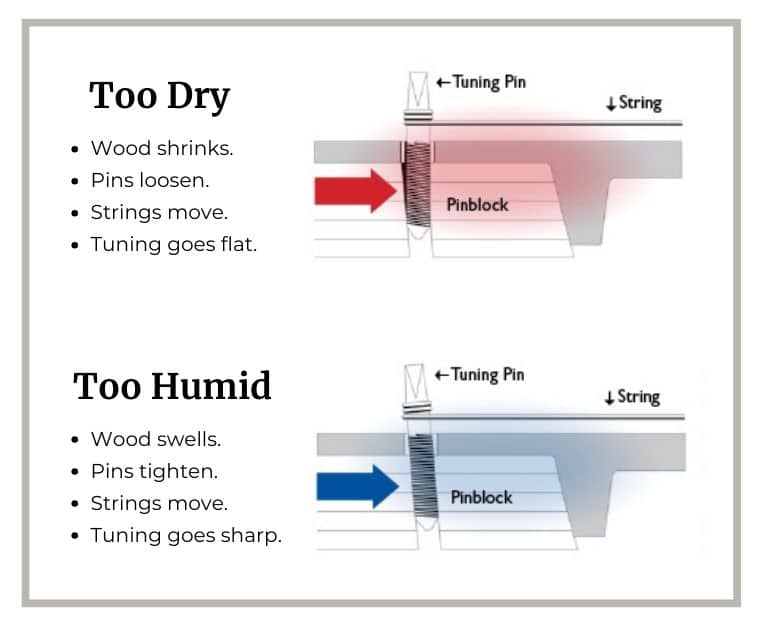
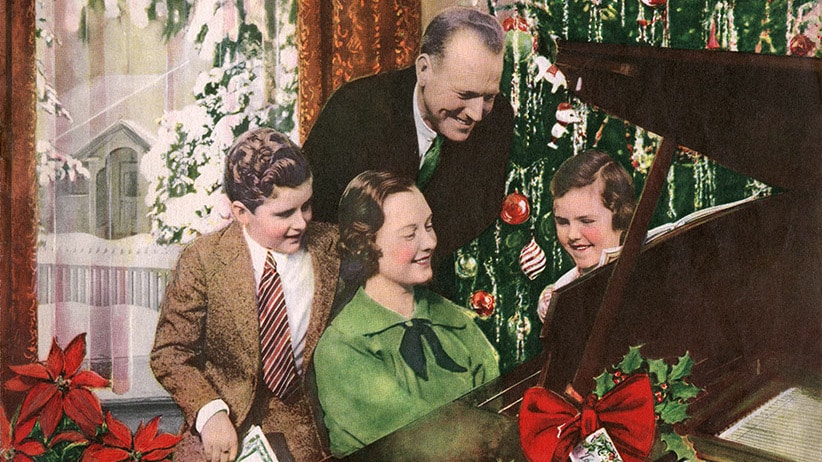
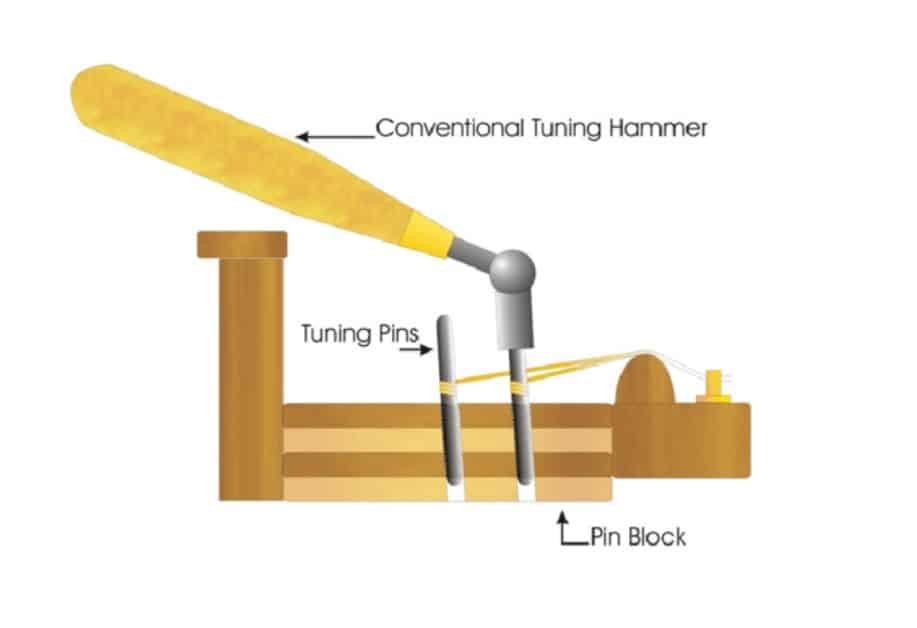
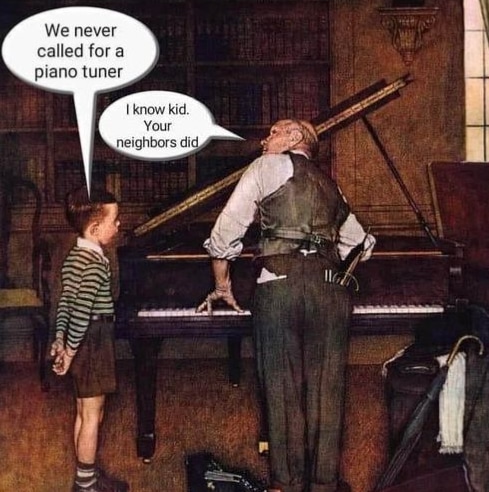



0 Comments